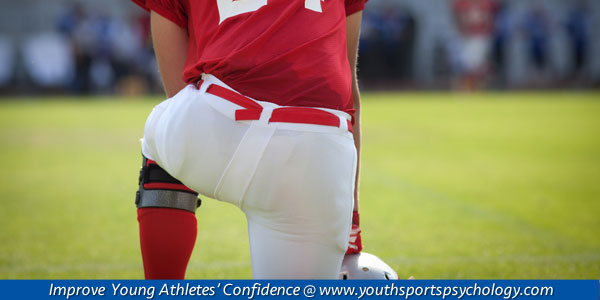
Mental Stamina in Youth Sports
Let’s say your young athlete is a golfer, baseball player or basketball player who needs to focus intensely before making a putt, throwing a pitch, hitting a ball or shooting a free-throw.
The player generally has a strategy and an intention; the goal is to follow through on that strategy and intention. But a lot can get in the way of that goal: doubts, worries and distractions can creep into young athletes’ minds and foil their efforts to focus.
So how exactly do young athletes learn how to avoid these traps?
Athletes need mental stamina to succeed. And just like they need training to boost their physical stamina, they need training and conditioning to develop mental stamina, says Wes Sime, Ph.D., a sports psychologist who has worked with Olympic athletes and coaches, was a professor of health and human performance at the University of Nebraska and specializes in biofeedback and neurofeedback.
One elite golfer told Sime, “I have changed my mind in mid-swing 10,000 times in my career,” Sime says. It’s that change-of-mind that sports kids want to avoid.
Sime uses biofeedback to help athletes young and old understand what gets in the way of their mental stamina.
You and your young athletes can learn from Sime’s work—without necessarily embracing biofeedback and neurofeedback.
“Biofeedback is being able to see or hear changes in the body that are so subtle we don’t see them sneaking up on us,” Sime says.
Sime can hook athletes up to sensors—sometimes using wireless sensors while the athletes are actually playing—and measure things like sweaty hands and brain waves to get a feel for what’s going on inside the athletes’ mind and body. Athletes then learn more about what causes them to do things like change their minds in mid-swing. This gives them the information they need to improve their mental stamina.
At Kids’ Sports Psychology, we help young athletes improve their mental stamina by teaching them to concentrate on what’s happening in the moment—the next swing, putt or play. We also suggest that they establish small, manageable goals and aim for them. That helps them stay focused. If they get distracted, we recommend that they try the Three R’s.
They need to:
- Recognize that they are dwelling on the past.
- Regroup by using a refocus statement to pull themselves out of the past.
- Refocus and get focused on the next play, shot, or routine.
Want to learn more about how to help kids boost their mental stamina, improve their confidence and improve their performance? At Kids’ Sports Psychology, we offer loads of resources to help improve your sports parenting skills and help kids make the most of their sports experience.
Our resources include:
- Audio interviews with experts like Sime;
- Our “Inside The Minds of Young Athletes” video series, with interviews with kids and Dr. Cohn’s commentary about their mental game;
- E-books aimed at helping boost kids’ confidence and success
- Articles about focusing, kicking perfectionism, playing in the moment,
- and much more!
Related Articles on Youth Sports:
- Help Athletes Trust the Training
- Why Young Athletes Shouldn’t Compare Their Skills To Others
- How Toxic Sports Cultures Hurt Kids’ Mental Health
*Subscribe to The Sports Psychology Podcast on iTunes
*Subscribe to The Sports Psychology Podcast on Spotify
Help Young Athletes Boost Confidence in Sports!
Every day, we receive letters from parents like you who want their children and teens to excel in sports. However, these parents can see fear, doubt, and frustration on the faces of their kids who struggle with the “inner” game of sports. But these parents have no idea how to help their kids overcome the worries, expectations and self-defeating thoughts that prevent their young athletes from feeling confident and successful.
You can benefit from our 15-plus years’ of work in sports psychology and sports parenting research. Now, you can tap into our secrets to sports success through a cutting-edge, 14-day program that helps young athletes overcome the top “mental game” challenges that sports parents face—and the top challenges young athletes face.

